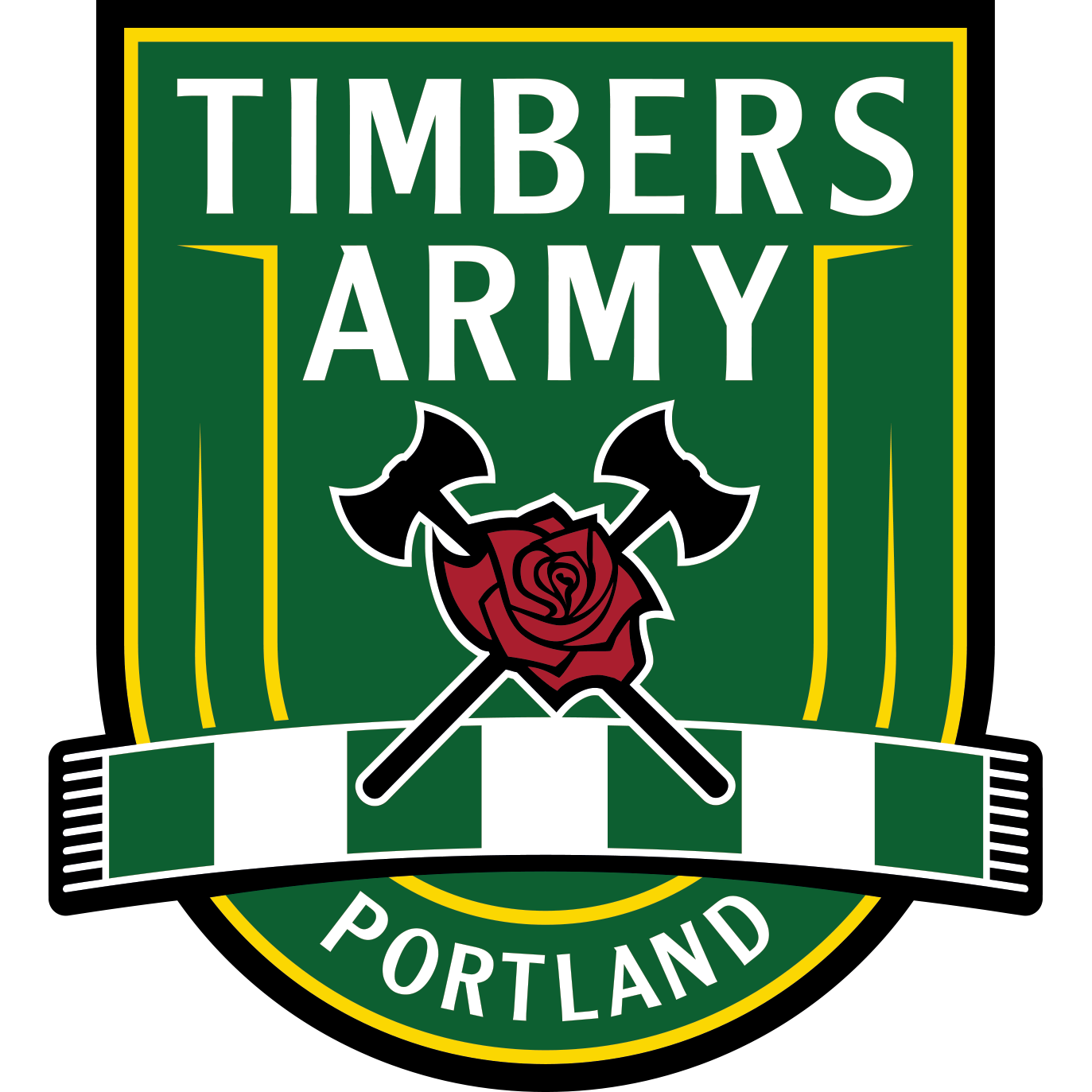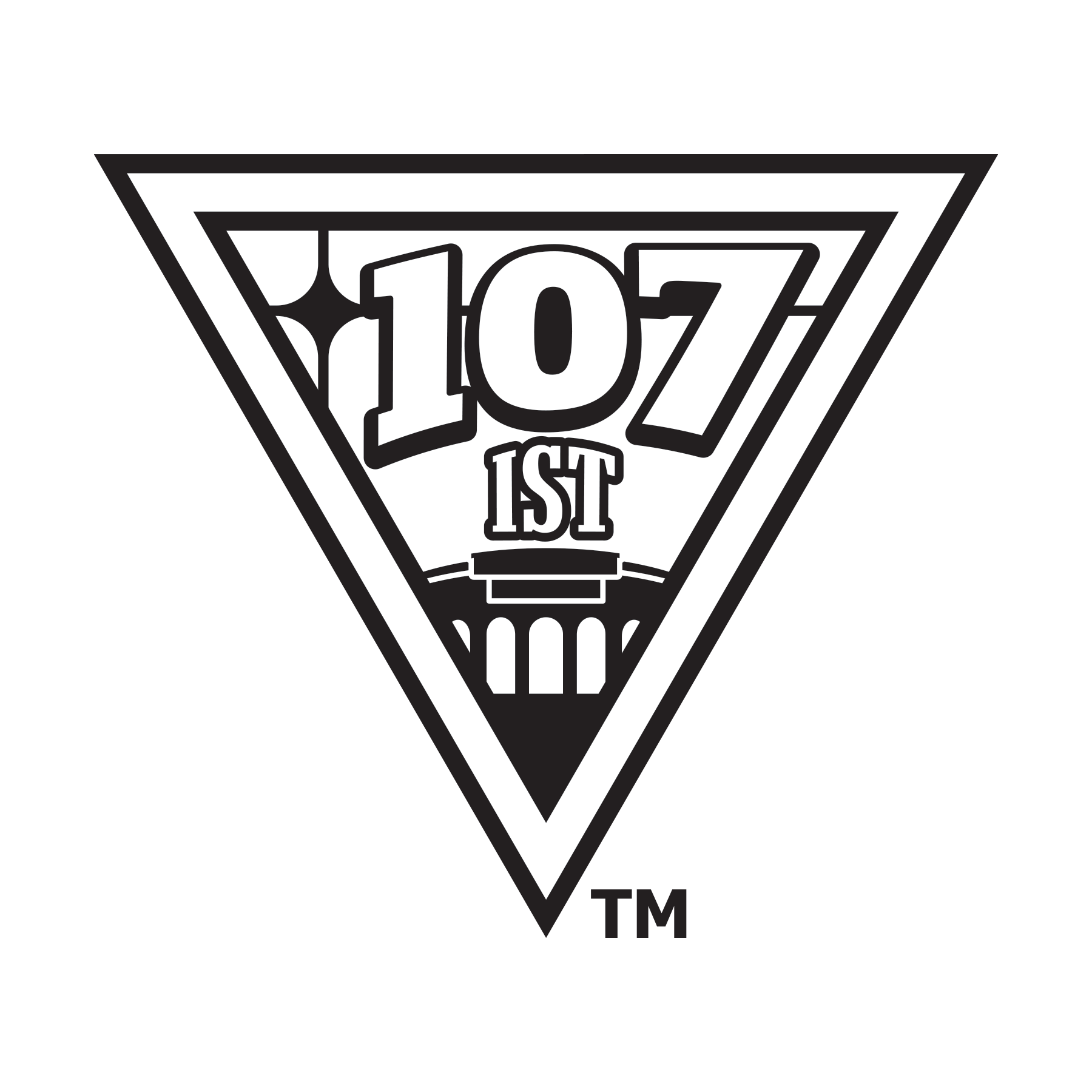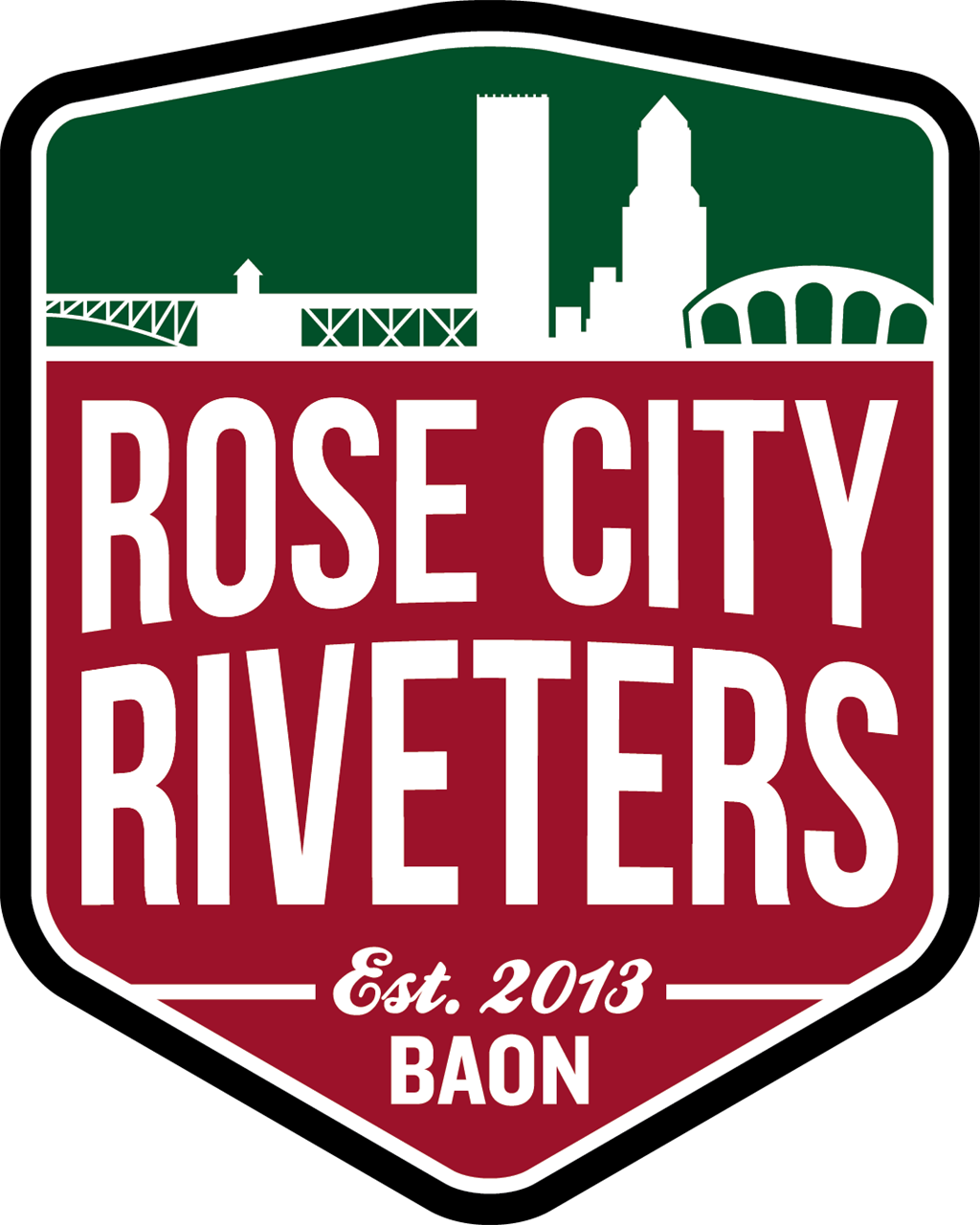The following is a post from Paul Atkinson.
The Timbers Army has stood for more than a decade as a force for human rights and radical inclusivity, expressed in our North End antics and our activism in our community and joined in recent years by the Rose City Riveters. This year, Major League Soccer (MLS) published a revised Fan Code of Conduct that contains language that appears designed to excuse arbitrary bans on fan behavior by including a prohibition against “political” signage. The new code prohibits:
Using (including on any sign or other visible representation) political, threatening, abusive, insulting, offensive language and/or gestures, which includes racist, homophobic, xenophobic, sexist or otherwise inappropriate language or behavior […] [1]
Subsequently the Portland Timbers, as a franchise of MLS, demanded the Timbers Army cease using Iron Front imagery. The Iron Front, appearing as a circle around three arrows pointing down and left, is an antifascist symbol from the 1930s that was designed to be painted over the swastika [2]. The Timbers front office explained this injunction as a fair and even-handed application of the MLS code of conduct. They contend that the policy is not at all arbitrary and that the Iron Front, in its current incarnation as a symbol of antifascism, is banned as political signage.
The Portland Timbers organization also owns the Portland Thorns of the NWSL. Despite the NWSL being unaffiliated with MLS, the organization extended their ban to Thorns matches as well.
The Timbers and Thorns front office does stand with us in supporting our displays in defense of other human rights. Banners and flags celebrating Pride Month are welcome in Providence Park, as are messages decrying racism and welcoming refugees to our city and our nation. We are grateful to have a responsible partner in this.
The ban on the Iron Front stands in jarring contrast.
I understand the arguments of those who say even Pride or anti-racism displays are “political,” but for this purpose I fall back on these simple definitions from Merriam-Webster:
Political: relating to the government or the public affairs of a country. [3]
Human right: a right that is believed to belong justifiably to every person. [4]
It is clear that human rights transcend politics and statements in support are not political. The United Nations has published a list of 30 internationally accepted human rights [5], and UN human rights chief Prince Zeid bin Ra’ad Zeid al-Hussein has warned that rising fascism globally and in the United States specifically stands as a threat to human rights [6]. Opposing fascism, then, is a human rights stance and not a political one.
Nationalistic displays, such as the singing of the National Anthem and a military color guard, precede every MLS match in the country. These displays are political and fall under the ban as written. These unquestionably relate to government and, in the case of the military, public affairs as well. A blanket ban on political displays cannot explain how the non-political Iron Front is banned but the political nationalism is not.
I contend that the wrong word was used: MLS wanted to ban controversial speech, which is an inherently arbitrary standard, and tried to disguise it in a way they felt would be more palatable. Only an arbitrary standard explains the capricious and contradictory combination of an Iron Front ban with a league-backed national anthem singer and show of military arms.
Understanding that the policy is arbitrary is important, because then we see that this isn’t a cool, logical application of an unbiased rule but rather a choice. The Timbers organization stands ready to sanction one of two groups. There’s the Timbers Army and Rose City Riveters on their left, supporting the team and standing thousands strong for human rights, inclusion, and antifascism. On their right are racists, white nationalists, homophobes, and the rising tide of American fascism, just as the UN warned us about. The Timbers organization can choose where to draw a line indicating which group they’re standing with, leaving the other isolated. They can’t stand with both, we hope it won’t be difficult for them to choose to be on the side of human rights.
We’re not asking them for much. We want them to unequivocally rescind the ban on any antifascist imagery, including the Iron Front; we want them to work with the league to drop the arbitrary and disingenuous word “political” from the fan code of conduct; and we want them to look to international institutions for help in rewriting that code to promote human rights, inclusivity, and anti-discrimination.
The Timbers Army and Rose City Riveters stand strong in defense of human rights and radical inclusivity. We work to build up both our teams and our community. We stand against white supremacists who have brought violence into our city and whose fascist ideology is a threat to freedom. Faced with an arbitrary standard and the ability to stand with one or the other, I implore the Portland Timbers and Portland Thorns to see reason and stand together with us.
References
[1] "Fan Code of Conduct," 01 March 2019. [Online]. Available: https://www.mlssoccer.com/fan-code-of-conduct.
[2] "Iron Front," Wikipedia, 09 07 2019. [Online]. Available: https://en.wikipedia.org/wiki/Iron_Front. [Accessed 01 08 2019].
[3] Merriam-Webster, "Definition of political," [Online]. Available: https://www.merriam-webster.com/dictionary/political. [Accessed 01 08 2019].
[4] Merriam-Webster, "Definition of human right," [Online]. Available: https://www.merriam-webster.com/dictionary/human%20right. [Accessed 01 08 2019].
[5] United Nations, "Universal Declaration of Human Rights," [Online]. Available: https://www.un.org/en/universal-declaration-human-rights/index.html. [Accessed 01 08 2019].
[6] P. Walker, "UN chief issues warning on the rise of fascism," The Independent, 09 12 2016. [Online]. Available: https://www.independent.co.uk/news/world/politics/united-nations-chilling-warning-rise-fascism-human-rights-prince-zeid-a7464861.html. [Accessed 01 08 2019].


